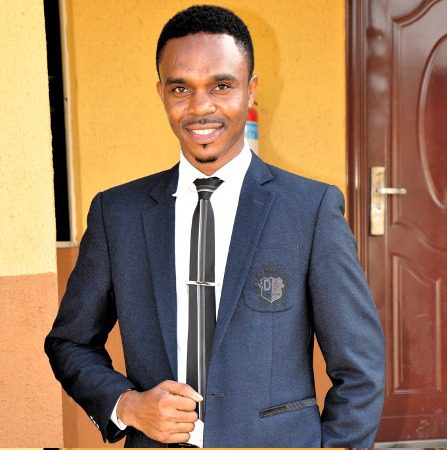Political Issues
Restructuring, Why We Must Reconsider Our Options -By Jeff Okoroafor


Jeff Okoroafor
Voices that opposed the call to restructure the governance system of the country in the past, are now the very ones openly advocating for it. Not long ago we heard from Ibrahim Badamasi Babangida (IBB), Nigeria’s former Head of State, also from the likes of former President Goodluck Jonathan, former Vice President Atiku Abubakar, Speaker of the House of Representative Honourable Yakubu Dogara, erstwhile Minister of Aviation Femi Fani-Kayode, President-General of Ohanaeze Ndigbo John Nnia Nwodo, Emir of Kano Mohammad Sanusi II, former CBN Governor Chukwuma Soludo, Leader of Afenifere Abraham Adesanya, Leader of PANDEF Chief Edwin Clark and a host of other high profile Nigerians. All the indicators shows that Nigeria is in a state of fragility and it has had a very negative impart on the lives of people, on safety and security, on trust, on social harmony etc to an extent of political instability as well as economic retrogression.
Before 1914 and through 1930s, there were robust engagements and agreements between communities, between traditional rulers, elites of different social and intellectual strata etc that brought Nigeria together and which culminated into a constitution that gave us independence. That was the federal constitution. Barely six years of the constitution working, there was a national crisis that was mismanaged and which saw the abandonment of that constitution, a constitution that introduced a perfect system for Nigeria. One history my father was so kind to often reiterate to me was the one that borders on how each federating unit in Nigeria came together under an understanding, that we live as a federation with different powers, privileges, responsibilities and rights distributed in a certain manner. And these rights, privileges, responsibilities and powers borders on the economy, on social inter-relationships, on the rights of the citizens and the responsibilities of both the citizens and the component parts. This to me sound like a structure – and so the structure we had, which took years of discussions, years of constitutional conferences, agreements etc, worked and was the perfect structure.
Anyone in Nigeria today who is above the age of 50 years, grew up at the time when Nigeria had a regional governments. Every area of Nigeria were financially independent and capable of propelling development to the highest level – in the North there were groundnut pyramids and the Ahmadu Bello University was built, textile mills were built. In the South West it was cocoa and the first television station in black Africa was built, the first stadium in Nigeria was built, free education at all level were launched. And some of the products have ended up in very high apex of the public and private sectors in today’s Nigeria. In the South East oil was the source of revenue and the University of Nigeria Nsuka was built, presidential hotels was built in Portharcourt and in Enugu. And a robust industrial policies that produced the first steel industry in black Africa, was built. How does one abandon a workable system for an unworkable system as we have today?
The constitutions of 1979 and 1999 were handed over to us by soldiers of fortune. It was their after war package to be able to manage the country in a unitary form, and to distribute loots of war by way of states and local governments. What parameters are local governments created in Nigeria today? Bayelsa with its very high production of oil revenue which is taken automatically to the distributable pool of Nigeria, has about 7 local governments and Kano has about 50, and local governments are used as an index of revenue distribution – arrangements of this nature as we have come to see over the years, destroys productivity. What country runs a federation in a unitary form?
As it is today and particularly worse with this government, our political system is flawed, unfair, exploitative and unsustainable. On the global terrorism index for instance, Nigeria ranks tenth after Iraq and Afghanistan and ahead of Pakistan and Syria. The World Economic Forum ranks Nigeria 127 out of 138 on the global competitive index. The UNESCO ranks Nigeria with Chad, Pakistan and Ethiopia as the worst educational system in the world. In the human development index of the United Nations Development Program, Nigeria ranks 152 out of 188 countries and its the lowest amongst competitive countries.
I believe the Nigeria of everyone’s dream is achievable. A Nigeria in which everybody is an equal partner. A Nigerian Nigeria. Where the sovereignty belongs to the people. A Nigeria that is restructured where the components units have control of their resources – natural or otherwise. These are all achievable feats. We have a 2014 national conference report that is sitting idle with no one giving it attention. I think that this is the time for leadership. The time when tough and very unpopular decisions must be made for the betterment of everyone and the sustenance of the nation.
President Muhammadu Buhari must hold a nationwide consultation and look for ways of solving the Nigeria problem in order to end the various agitations bordering on marginalization of the people of the Southern region of this country.
A true federal system of governance is the golden key to unlocking the unity of Nigeria.
God bless Nigeria.
Jeff Okoroafor is a good governance advocate and human rights activist. Follow him on Twitter @JeffOkoroafor


















